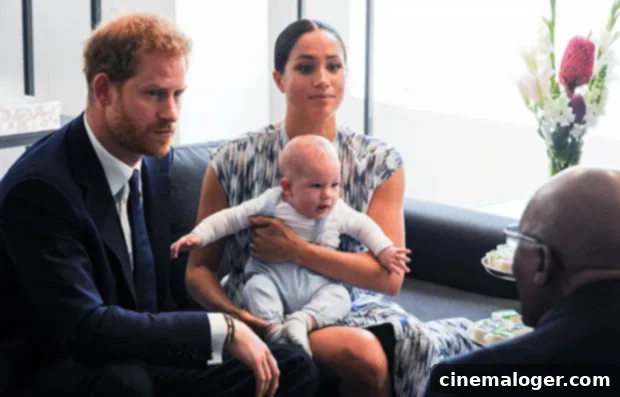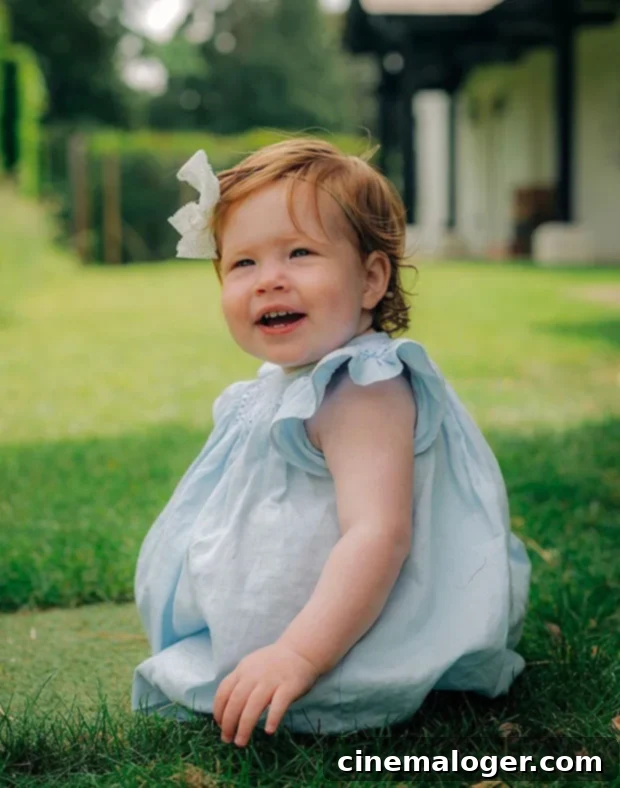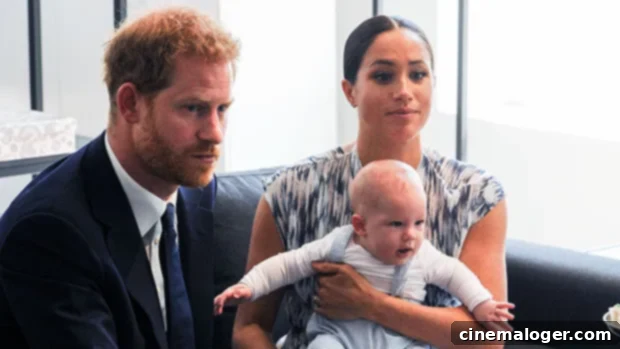Prince Harry on ‘Spare,’ Childhood Trauma, and Conscious Parenting with Dr. Gabor Maté
In a deeply revealing and intimate live conversation, Prince Harry, Duke of Sussex, delved into the profound impact of his bestselling memoir ‘Spare,’ openly discussing his challenging childhood experiences and how these struggles have shaped his approach to fatherhood. This significant dialogue took place with renowned trauma expert, Dr. Gabor Maté, providing a rare glimpse into the Duke’s personal journey of healing and conscious parenting.
The virtual event, held on a Saturday, saw Prince Harry, 38, engage in an in-depth discussion with Dr. Gabor Maté, a highly respected physician specializing in addiction, trauma, stress, and childhood development. During their candid exchange, Harry articulated his unwavering commitment to showering his two children, Archie, 3, and Lilibet, 1, with an abundance of love and physical affection. This dedication, he revealed, stems directly from his childhood experiences, detailed in ‘Spare,’ where he expressed a heartfelt wish for more physical affection from his father, King Charles, and his late grandmother, Queen Elizabeth.
A Father’s Pledge: Breaking Cycles of Trauma
“It leaves me in the position how as a father, I have two kids of my own, making sure that I smother them with love and affection,” Prince Harry shared with Dr. Maté. He light-heartedly added that he doesn’t “smother them to the point that they’re trying to get away,” as reported by People. His words underscore a profound sense of responsibility to his children. “But in the sense that I as a father feel a huge responsibility to ensure that I don’t pass on any traumas or negative experiences I’ve had. And that’s work, that’s putting in the work, and daily, being conscious of my behavior, of my reactions to both of my kids.”
This commitment to conscious parenting highlights a fundamental aspect of Harry’s post-royal life: an earnest effort to confront and heal from his past to ensure a different future for his children. His dedication to providing a loving, emotionally secure environment for Archie and Lilibet is a direct response to what he perceived as an emotionally distant upbringing within the confines of the British monarchy. The concept of “smothering with love” isn’t about overindulgence but about ensuring an ever-present, reassuring emotional connection, a cornerstone of healthy child development.

Harry further elaborated on the daily effort required for this level of self-awareness in parenting. “And there are times when I catch myself in a moment when I should be smothering them with that love and in that moment, I might not be, reminding myself [to],” he added. This self-correction mechanism, he credits entirely to his therapeutic journey. “I wouldn’t have been as aware of it had I not done the therapy and work that I’ve done.” This statement powerfully underscores the transformative potential of therapy and self-reflection in recognizing ingrained patterns and consciously choosing to change them for the benefit of the next generation.
Dr. Gabor Maté and the Roots of Trauma
Dr. Gabor Maté, widely recognized for his work on the interconnectedness of trauma, addiction, and physical and mental health, is the author of several influential books, including The Myth of Normal: Trauma, Illness, and Healing in a Toxic Culture. His insights into how societal pressures and early childhood experiences contribute to later life struggles resonate deeply with Prince Harry’s narrative. Maté’s approach emphasizes understanding the underlying causes of distress, rather than merely treating symptoms, making him an ideal confidant for Harry’s personal revelations.
During their conversation, Dr. Maté posed a poignant question, inviting Harry to imagine the “impact” on Archie and Lilibet if they were “not getting the hugging the way you didn’t get it.” This hypothetical scenario aimed to highlight the cyclical nature of emotional patterns within families and the profound consequences of unmet emotional needs during formative years.

Harry, who along with his wife Meghan Markle, made the significant decision to relocate to Southern California in 2020, acknowledged the potential repercussions. “I don’t know what the impact would be, but I imagine the result would be similar,” he answered, drawing a direct parallel to his own struggles and the emotional landscape of his upbringing. His response underscores a deep understanding of how early experiences shape identity and relationships.
The Power of Environment and Agency
A crucial aspect of Harry’s discussion revolved around the ability to change one’s environment as a catalyst for healing and positive change. He expressed immense gratitude for this privilege, stating, “That’s why, again, I am grateful to have been able to change my environment, which I fully appreciate that not everyone can do, because it comes down to resource.” This acknowledgment highlights the socio-economic factors that often dictate access to profound life changes, a stark reality for many.
The move from the UK to the US represented more than just a geographical shift for Harry; it signified a fundamental change in lifestyle and an opportunity to redefine his family’s narrative. “To be able to change the root cause of so much of those issues, to be able to up, move, that to me, feels as though it gives me much more of a chance, and my wife, more agency as parents, to be able to bring our kids up in a way that’s really beneficial and good for them,” he continued. This concept of “agency” is vital, empowering him and Meghan to create an upbringing for Archie and Lilibet that aligns with their values and ensures their emotional well-being, free from the intense scrutiny and perceived emotional rigidity of royal life.
Reflecting on his past, Harry offered a nuanced perspective on his royal childhood: “I had an incredible childhood, elements of it, and elements of it were incredibly painful.” This balanced view acknowledges the undeniable privileges and unique experiences that came with his birthright, alongside the profound losses and emotional challenges, most notably the passing of his mother, Princess Diana, when he was just 12 years old. This duality – privilege coupled with profound pain – is a central theme in ‘Spare’ and informs much of his current advocacy and parenting philosophy.
On-the-Spot Diagnoses and Mental Health Awareness
One of the most striking moments of the live conversation was when Dr. Maté, based on Harry’s candid sharing, diagnosed Prince Harry with Post-Traumatic Stress Disorder (PTSD), Attention Deficit Disorder (ADD), anxiety, and depression on the spot. Harry appeared to accept these diagnoses with a sense of understanding, further admitting that he had previously been diagnosed with PTSD by his own personal therapist. This public acknowledgment from both a renowned expert and Harry himself serves to normalize mental health diagnoses and encourage open discussion.
PTSD, a condition triggered by experiencing or witnessing a terrifying event, often manifests through flashbacks, nightmares, severe anxiety, and uncontrollable thoughts about the event. Given the trauma of losing his mother at a young age in such a public and sensationalized manner, and growing up under intense media scrutiny, a PTSD diagnosis is understandable. ADD, a neurodevelopmental disorder affecting attention and impulse control, alongside anxiety and depression, often co-occur with trauma and can significantly impact an individual’s daily functioning and emotional landscape.
Harry’s openness about these diagnoses, especially coming from a figure of his prominence, contributes significantly to destigmatizing mental health issues. It sends a powerful message that even those in positions of privilege and public visibility grapple with complex psychological challenges, and that seeking professional help is a sign of strength, not weakness. His willingness to share his vulnerabilities, both in ‘Spare’ and in this conversation, helps to foster a global dialogue about the importance of mental well-being and the courage it takes to address past traumas.
The Ongoing Journey of Healing and Conscious Parenting
Prince Harry’s conversation with Dr. Gabor Maté was more than just a promotional event for his memoir; it was a testament to his ongoing journey of healing, self-discovery, and dedication to creating a healthier future for his family. By publicly discussing his childhood struggles, his therapeutic process, and his intentional approach to parenting, Harry is not only advocating for his own well-being but also for the broader conversation around mental health, intergenerational trauma, and the power of conscious choice in shaping one’s destiny.
His commitment to “smothering” Archie and Lilibet with love and affection, consciously breaking cycles of perceived emotional distance, demonstrates a profound evolution in his understanding of family, love, and emotional resilience. This intimate discussion serves as a powerful reminder that while past experiences can leave lasting imprints, self-awareness, therapy, and a deliberate effort to change one’s environment can pave the way for a more loving, connected, and emotionally rich future for both parents and their children.
